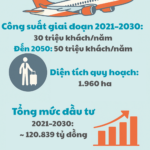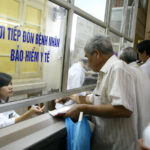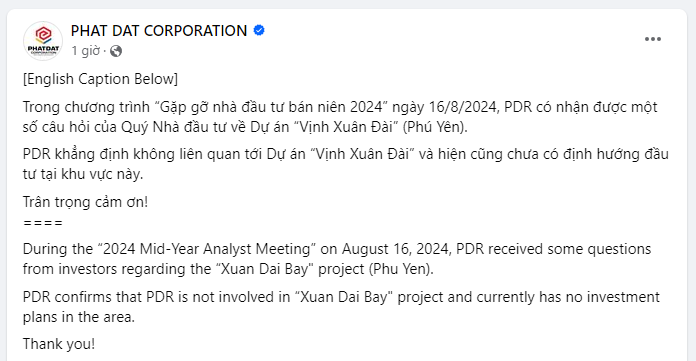Attorney Tran Xuan Tien, Head of the Dong Doi Law Office, provided specific details on the new conditions for granting land use certificates to undocumented land under the 2024 Land Law:
1. Expanding the scope of land use certificate eligibility: Previously, to obtain a land use certificate, land users had to provide documents proving their land use rights as stipulated in the 2013 Land Law. However, Article 138 of the 2024 Land Law expands the scope to include households and individuals who use land without documentation but have been doing so stably and without violating land-related laws. This change particularly benefits rural residents, where informal land transfers are common, by providing them with an opportunity to legalize their land use rights.
2. Simplifying requirements for proving land origin:
– According to Article 139 of the 2024 Land Law, households and individuals currently using land without documentation but meeting the following criteria are eligible for consideration for a land use certificate:
+ No violation of land-related laws, meaning no encroachment on public land and no misuse of land.
+ Stable land use before July 1, 2014.
+ No disputes as confirmed by the People’s Committee at the commune level.
Satisfying these conditions makes it possible for land users to obtain the certificate. This is a significant shift from previous regulations, making it easier for residents, especially those with long-term, dispute-free land use, to legalize their land holdings.
3. Eliminating the requirement for land allocation by authorized entities:
– Another crucial change is that Article 140 of the 2024 Land Law no longer mandates that land must be allocated by authorized entities, as previously required. This means that land acquired through informal means (such as handwritten contracts or direct exchanges without the involvement of authorized entities) can still be considered for a land use certificate, provided there are no disputes and no violations of the law.
– In the past, individuals who acquired land through unauthorized allocation faced significant challenges in legalizing their land use rights. However, this new provision opens up opportunities for a broader range of cases.
4. Reducing legal barriers related to disputes and planning: Article 141 of the 2024 Land Law also demonstrates more flexibility concerning disputes and planning. Previously, obtaining a land use certificate would be challenging if the land was located in a planned area or was subject to a dispute. However, the new regulations allow for the consideration of land use certificates even in cases of minor disputes or plans that have not yet been implemented or decided upon.
5. Streamlining the application process and simplifying the dossier for obtaining a land use certificate: In addition to relaxing the conditions, the 2024 Land Law also includes provisions to streamline the application process for land use certificates, especially for undocumented land. Applicants only need to provide evidence of their stable land use and the absence of disputes, supported by confirmations from local authorities.
With these relaxed conditions for granting land use certificates to undocumented land, the 2024 Land Law facilitates the legalization of land use rights for residents while reducing unnecessary legal barriers. This will help address the issue of undocumented land in many areas, especially in rural and suburban areas and regions undergoing economic transformation, emphasized Attorney Tran Xuan Tien.

Attorney Tran Xuan Tien, Head of Dong Doi Law Office
According to the new provisions in Articles 138-140 of the 2024 Land Law, cases of undocumented land that can still be considered for land use certificates (red book) to resolve outstanding land issues and facilitate the legalization of land use rights for residents include:
1. Land used before July 1, 2014, without documentation:
– Individuals and households who used land before July 1, 2014, without documentation of land use rights as specified in Clause 1, Article 138 of the 2024 Land Law but meet the following conditions will be granted a red book:
+ No violation of land-related laws (no encroachment, no disputes, etc.).
+ The land was not allocated by unauthorized entities (not obtained from individuals or organizations that allocated land illegally).
+ The land is not subject to planning, or if it is, the planning has not been decided or implemented yet.
2. Land used stably for an extended period without documentation:
– In cases of stable long-term land use without documentation proving land use rights, individuals or households who have acquired the land through informal means such as handwritten contracts, gifts, or inheritance can still be granted a red book if they meet the conditions specified in Clauses 2 and 3 of Article 138 of the 2024 Land Law:
+ Stable and dispute-free land use.
+ Confirmation from local authorities about the stable and dispute-free land use history.
– In such cases, individuals can provide evidence such as land tax receipts, confirmations from local authorities, or other proofs of stable land use.
3. Land encroached or misused before July 1, 2014:
– For cases where individuals encroached on public land or misused land before July 1, 2014, but have since used it stably without disputes, a land use certificate can be considered, provided they meet the conditions stipulated in Article 139 of the 2024 Land Law:
+ The land is not subject to reclamation or is in line with the current planning.
+ All financial obligations related to land use have been fulfilled.
Granting a red book in these cases legalizes the land use rights of those who encroached on or misused land before July 1, 2014, but now have no violations and stable land use.
4. Land allocated by the State without an allocation decision:
– For land allocated by unauthorized entities before July 1, 2014, but with stable and dispute-free land use as stipulated in Article 140 of the 2024 Land Law, a land use certificate can be granted. This applies to cases where the land was allocated by agencies or organizations without the proper authority but has since been used stably and for an extended period.
“Cases of undocumented land that can be granted a land use certificate under the 2024 Land Law must meet the conditions of stable land use, no disputes, and alignment with the local land-use planning,” added Attorney Tran Xuan Tien.
The Magic City’s Solution: Unraveling the Mystery of 9,000 Land Files
The Ho Chi Minh City People’s Committee has proposed a solution to resolve financial obligations and land-related tax issues, which have caused a backlog of nearly 9,000 land dossiers.
The Charm of Da Nang: Unveiling the Secrets of Son Cha Island and Hai Van Mountain’s Southern Slopes
On September 11th, the Government Office announced the conclusion of Deputy Prime Minister Nguyen Hoa Binh regarding the determination of administrative boundaries between Thua Thien Hue Province and Danang City. As a result, Danang City will administer Son Cha Island and the southern area of Hai Van Pass.
Unlocking Opportunities: Navigating the New Land Price Regulations
As per the Deputy Minister of Natural Resources and Environment, Le Minh Ngan, to address the challenges in implementing the Land Price Table as per the Land Law 2024, local authorities must focus on finalizing documents within their jurisdiction. They should also assess the impact of the draft land price table on the applicable subjects, among other crucial considerations.











































